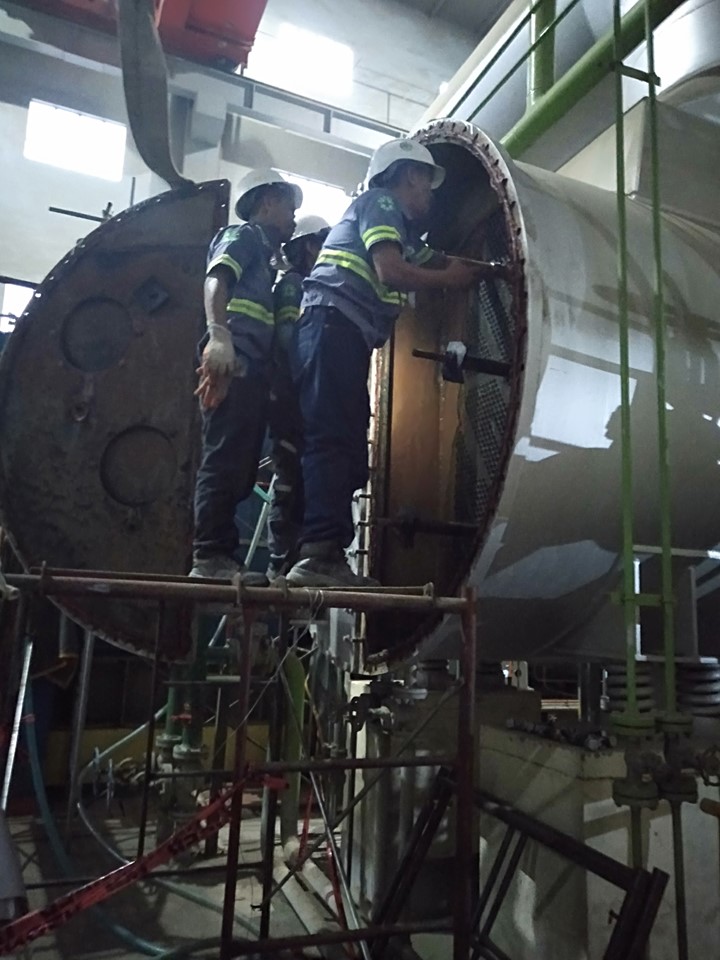How Descaling of Heat Exchangers Can Boost Industrial Efficiency and Prolong Equipment Life
Heat exchangers are vital in various industrial processes, transferring heat between fluids to maintain temperature and increase energy efficiency. Over time, heat exchangers can accumulate mineral deposits, scales, and corrosion, hindering their performance and compromising the efficiency of industrial operations.
Chemical descaling offers an effective solution to remove these unwanted deposits and ensure the smooth operation of heat exchangers. This article will explore the importance of chemical descaling for heat exchangers in the industrial sector and how this process helps optimize their performance.
Understanding Chemical Descaling of Heat Exchangers
Chemical descaling is a specialized cleaning process involving chemical agents to dissolve and remove mineral scales, rust, and other deposits that accumulate on the surfaces of heat exchangers. This method is particularly effective for removing stubborn scales that cannot be eliminated through conventional cleaning methods.
The Importance of Descaling Heat Exchangers
Maintaining Heat Transfer Efficiency
Mineral scales and deposits act as insulators, forming a barrier on the heat exchanger surfaces that hinders heat transfer, reduces heat exchange efficiency, and increases energy consumption. Chemical descaling effectively removes these deposits, restoring the heat exchanger’s ability to transfer heat efficiently and optimizing energy usage.
Preventing Flow Obstructions
Accumulated deposits within the heat exchanger can obstruct flow and pressure drops, impeding the smooth flow of fluids. Chemical descaling removes these blockages, ensuring the continuous and unhindered flow of fluids within the heat exchanger.
Enhancing Equipment Lifespan
Regular chemical descaling helps extend the lifespan of heat exchangers by preventing corrosion and scaling. Corrosion caused by the accumulation of deposits can lead to equipment damage, reducing the overall longevity of the heat exchanger. Descaling removes these corrosive substances, preserving the integrity and durability of the equipment.
Improving Energy Efficiency
A clean heat exchanger operates optimally, reducing energy consumption and operating costs. Chemical descaling improves energy efficiency by removing the insulating scales that decrease heat transfer rates and lead to excessive energy usage.
Ensuring Consistent Process Performance
Consistent process performance is crucial in industrial settings for maintaining productivity and product quality. A well-maintained and properly descaled heat exchanger ensures stable and reliable heat transfer, contributing to consistent process performance and minimizing operational disruptions.
Compliance with Safety and Environmental Regulations
Industrial processes often involve handling hazardous fluids or materials. A malfunctioning heat exchanger due to scaling or deposits can compromise safety and lead to environmental concerns. Proper chemical descaling ensures the heat exchanger operates as intended, complying with safety regulations and minimizing potential environmental risks.
The Need for Descaling in the Industrial Sector
In the industrial sector, heat exchangers are used in various applications, including power generation, petrochemical refining, chemical processing, HVAC systems, and more. In these industries, heat exchangers are subjected to harsh conditions and exposure to corrosive materials. As a result, scaling and deposits are common issues affecting heat exchangers’ performance.
Without regular descaling, the efficiency of heat exchangers significantly decreases, leading to increased energy consumption and higher operational costs. The buildup of scales and deposits can cause flow disruptions, equipment damage, and reduced productivity. In extreme cases, unscheduled shutdowns and costly repairs may be necessary, causing production delays and financial losses for industrial companies.
By implementing a proactive chemical descaling maintenance program, industrial companies can prevent these issues and maximize their heat exchangers’ efficiency and longevity, resulting in increased operational efficiency, reduced energy consumption, and prolonged equipment lifespan. Regular descaling ensures optimal heat transfer, improves energy efficiency, reduces downtime, and contributes to a safer and more sustainable industrial operation.
The importance of chemical descaling lies in its ability to optimize energy usage, ensure consistent process performance, and comply with safety and environmental regulations.

